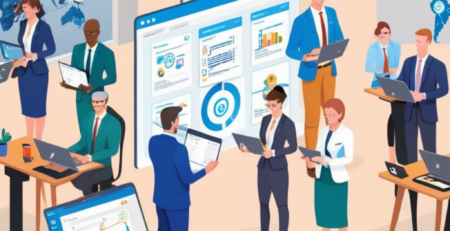Designing Effective Custom eLearning for Remote Teams
Remote work is here to stay, and with it comes the challenge of training and upskilling employees effectively, no matter where they are. Custom eLearning has become the go-to solution for organizations looking to provide scalable, engaging, and personalized training experiences for distributed teams. But how do you design eLearning courses that truly work for remote teams? This guide covers best practices, key elements, and must-have strategies to create impactful digital learning programs.
Table of Contents
- The Importance of Custom eLearning for Remote Teams
- Understanding the Needs of Remote Teams
- Key Elements of Effective eLearning Design
- Leveraging Technology for Engagement
- Measuring the Success of eLearning Programs
- Conclusion and Next Steps
The Importance of Custom eLearning for Remote Teams
Traditional in-person training doesn’t always translate well to a remote setting. Custom eLearning, however, offers flexibility, personalization, and accessibility, ensuring employees stay engaged and continue to grow in their roles.
Understanding the Needs of Remote Teams
Before designing a Digital Learning solution, it’s crucial to understand the distinct needs of remote teams. Key considerations include:
- Time zones and scheduling flexibility
- Technical proficiency and resource availability
- Preferred learning styles
- Feedback and support mechanisms
By acknowledging these factors, instructional designers can create Custom eLearning modules that are accessible and effective for a diverse range of learners.
Key Elements of Effective eLearning Design
To design effective eLearning solutions, consider incorporating the following elements:
- Interactivity: Foster engagement through quizzes, simulations, and interactive scenarios.
- Microlearning: Break down content into bite-sized, easily digestible units.
- Mobile-Friendly Design: Ensure courses are accessible on various devices, allowing learners to progress at their convenience.
- Gamification: Use game elements like points, badges, and leaderboards to motivate learners.
Leveraging Technology for Engagement
Incorporating advanced technologies can significantly enhance the eLearning experience:
- Virtual Reality (VR): Offer immersive training experiences for practical skill development.
- Artificial Intelligence (AI): Personalize learning paths and provide instant feedback.
- Social Learning Platforms: Facilitate peer-to-peer interaction and collaborative learning.
Utilizing these technologies not only improves content delivery but also increases learner engagement and retention.
Measuring the Success of eLearning Programs
It’s essential to track the effectiveness of Custom eLearning solutions to ensure they meet organizational goals. Key metrics include:
- Completion rates and learner progress
- Feedback scores and learner satisfaction
- Performance improvement and transfer of knowledge
- Return on investment (ROI)
By evaluating these metrics, organizations can pinpoint areas of improvement and refine their eLearning strategies.
Conclusion and Next Steps
Designing effective Custom eLearning for remote teams is integral to maintaining a well-trained and engaged workforce. By understanding team needs, leveraging technology, and measuring success, organizations can cultivate a productive learning environment. We invite you to share your experiences with remote learning or reach out for personalized solutions to optimize your team’s Digital Learning journey.
Are you ready to revolutionize your remote team’s learning experience with bespoke eLearning solutions? Contact us today for a consultation!












Leave a Reply